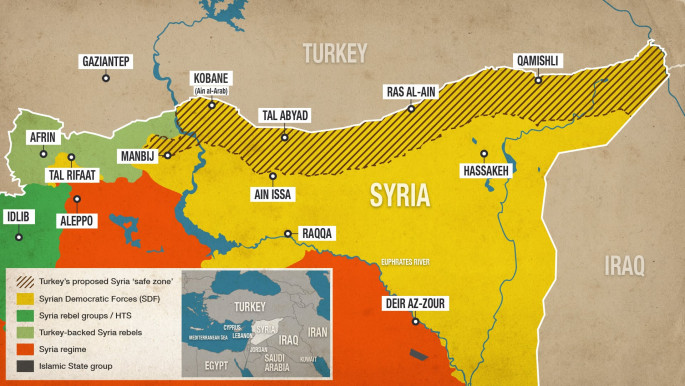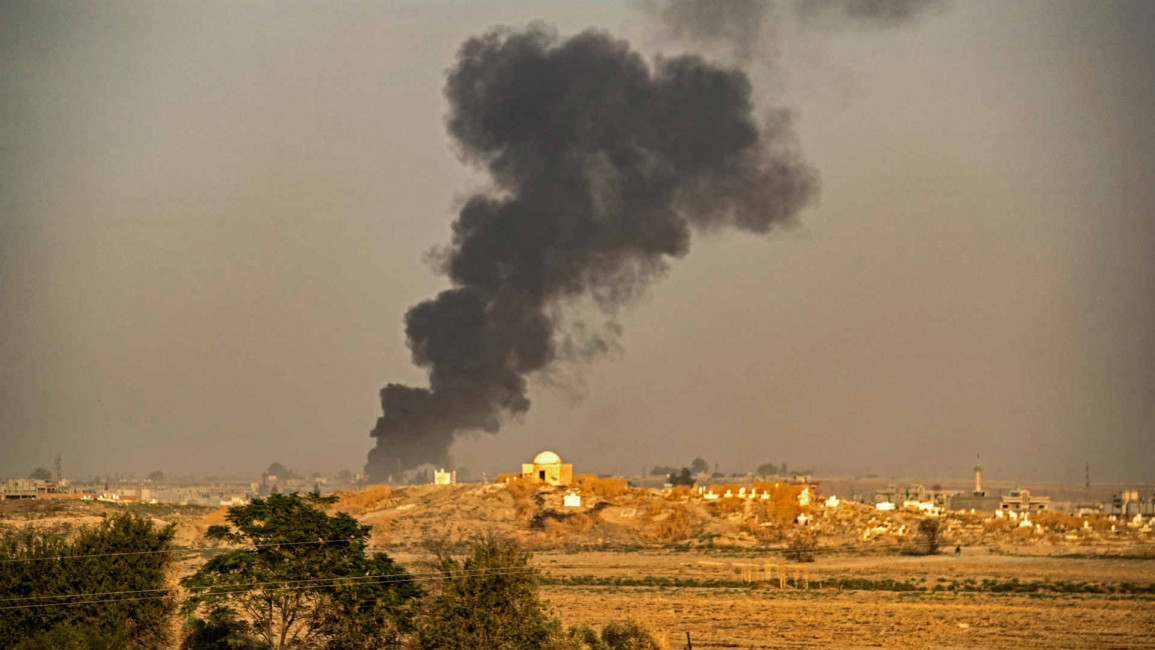Kurdish forces start withdrawing from Syria-Turkey border
Russian forces have started patrols along the flashpoint frontier, filling the vacuum left by a US troop withdrawal that effectively returned a third of the country to the Moscow-backed regime of dictator Bashar al-Assad.
An AFP correspondent saw a Russian patrol set off from the town of Qamishli westwards along the Turkish border flying Russian flags, accompanied by Kurdish security forces.
US President Donald Trump has praised the agreement reached in Sochi by NATO member Turkey and Russia and rejoiced that US personnel were leaving the "long blood-stained sand" of Syria, leaving just a residual contingent behind "where they have the oil".
The deal signed in the Black Sea resort by Syria's two main foreign brokers gives Kurdish forces until Tuesday to withdraw to a line 30 kilometres from the border.
The Syrian Observatory for Human Rights reported that the Kurdish-led Syrian Democratic Forces had pulled out of some areas at the eastern end of the border on Thursday.
"The SDF have withdrawn from positions between Derbasiyeh and Amuda in the Hasakeh countryside," the Britain-based war monitor's head, Rami Abdel Rahman, said.
Fighters of the Kurdish People's Protection Units (YPG) - the main component of the SDF - remained in many positions along the 440 kilometre border, he added.
Read also: SDF 'executed civilians' before withdrawing from north Syria town: reports
The Observatory also reported clashes near the town of Tal Tamr between SDF fighters and some of the Syrian former rebels paid by Turkey to fight ground battles.
Displacement
SDF commander Mazloum Abdi on Twitter accused the Turkish-led forces of violating the truce on the eastern front of Ras al-Ain.
"The guarantors of the ceasefire must carry out their responsibilities to rein in the Turks," he added on Twitter.
The events were set to provoke "forceful" discussion at a NATO defence minister meeting in Brussels on Thursday and Friday but Ankara risked little because of its strategic position, diplomats said.
Russian and Syrian government forces were deployed across the Kurdish heartland to assist "the removal of YPG elements and their weapons".
Kurdish forces had already vacated a 120-kilometre segment of the border strip - an Arab-majority area between the towns of Ras al-Ain and Tal Abyad.
The SDF withdrawal from that area came after Turkey and its Syrian proxies launched their deadly cross-border offensive on 9 October.
Turkish President Recep Tayyip Erdogan, who is embattled on the domestic political front, hopes to use the pocket to resettle at least half of the 3.6 million Syrian refugees his country hosts.
Under the Sochi deal, the area will remain under the full control of Turkey, unlike the rest of the projected buffer zone which will eventually be jointly patrolled by Turkey and Russia.
Some 300,000 people have fled their homes since the start of the Turkish offensive and many Kurds among them seem unlikely to return.
Oil wells
US forces pulled back from the border area earlier this month, in a move the Kurds saw as a betrayal but which Trump had discussed since last year.
The autonomous Kurdish administration in Syria had hoped that the sacrifices made in the name of the international community to help crush the Islamic State group's "caliphate" would pay off.
Read more: Turkey, the Kurds and the demographic re-engineering of Syria
But Trump has been keen to keep a promise to remove his troops from Syria, where IS's "caliphate" was eliminated in March but where conflict continues.
"Let someone else fight over this long blood-stained sand," he said in a White House speech on Wednesday.
That "someone" is undoubtedly Russia, whose status as the main foreign power in Syria is now undisputed, to Assad's great benefit.
"Assad is getting back a third of Syria's territory without firing a shot," geographer and Syria specialist Fabrice Balanche said.
Some US forces remain in eastern districts of Syria, where government forces have been deploying but have not yet re-established full control.
"We have secured the oil and, therefore, a small number of US troops will remain in the area where they have the oil," Trump said on Wednesday.
The Syrian regime is keen to reclaim the northeast, which is home to the country's main oilfields and some of its most fertile farmland.
In a phone call with Russia's defence minister and military chief on Wednesday, Abdi thanked Moscow for "defusing the war in our region and sparing civilians its scourge," the SDF said.
Follow us on Twitter: @The_NewArab



